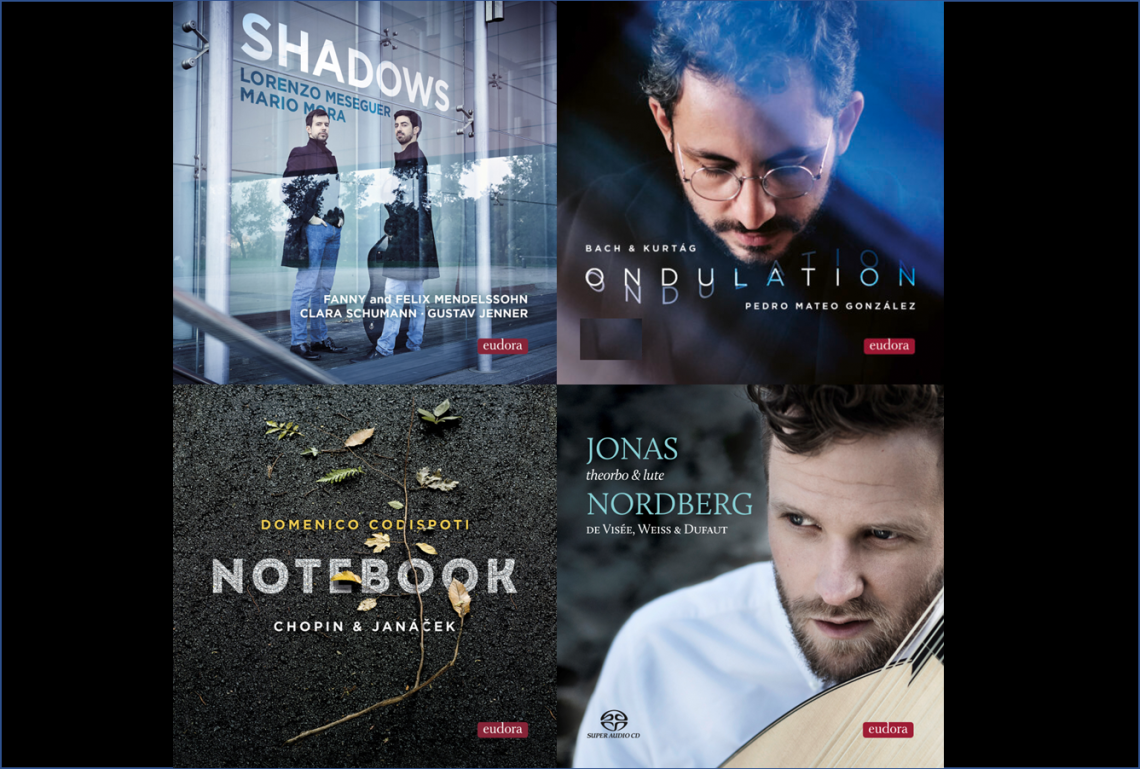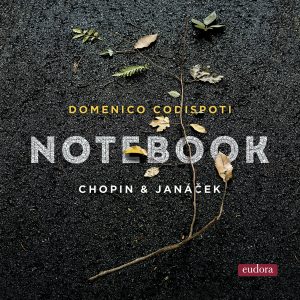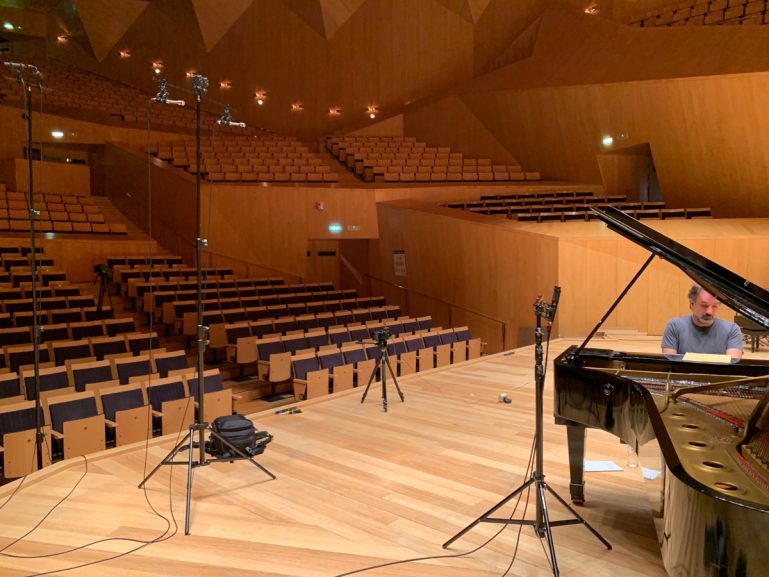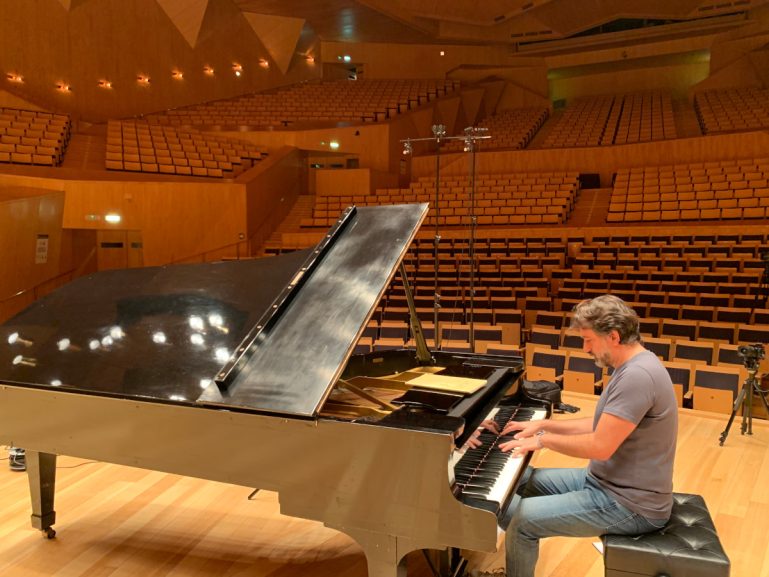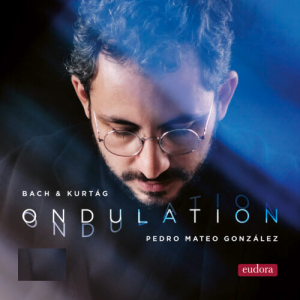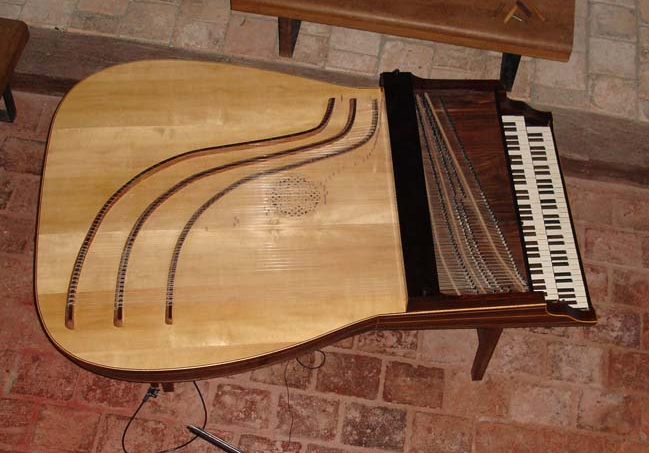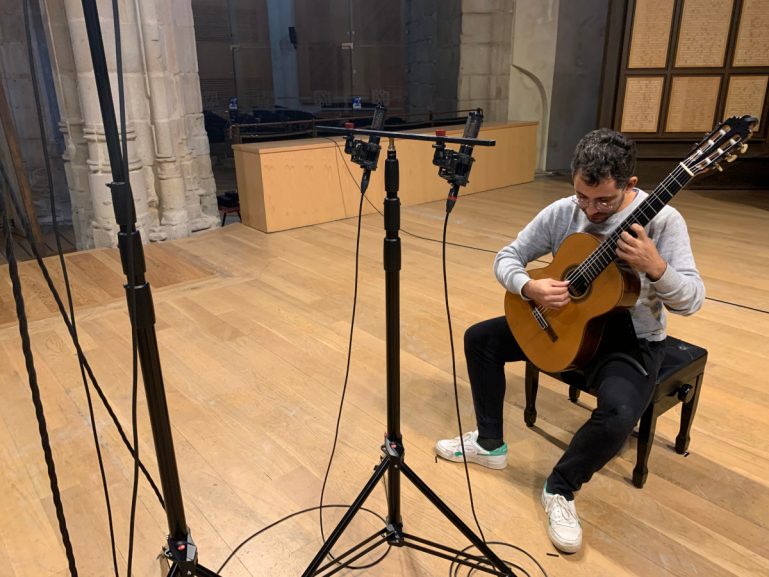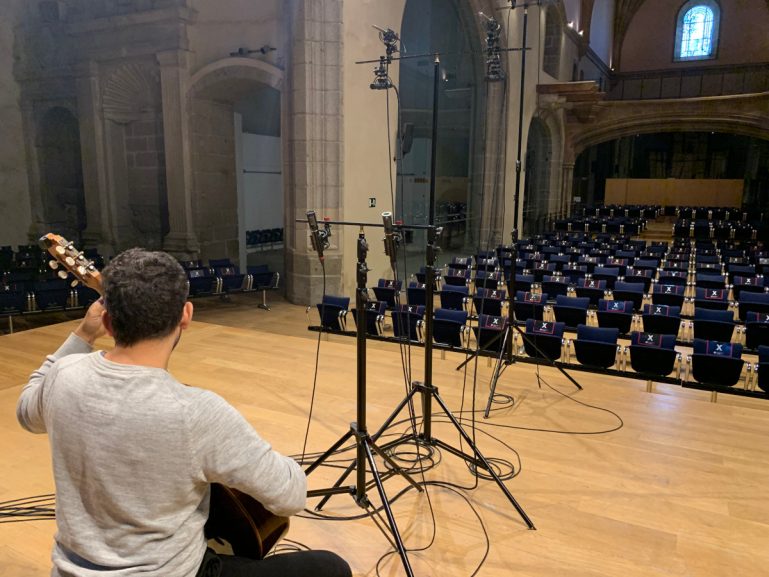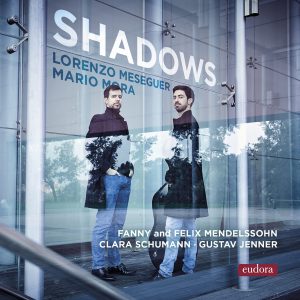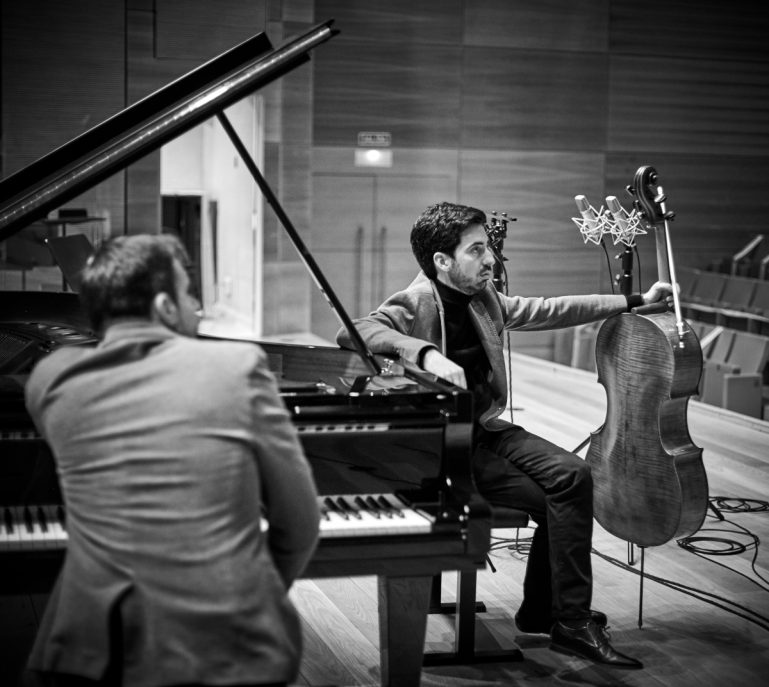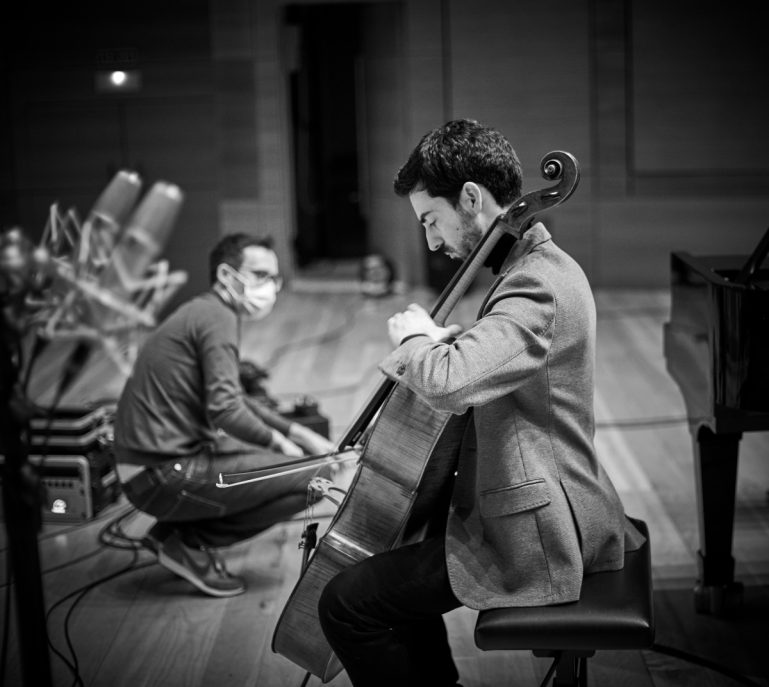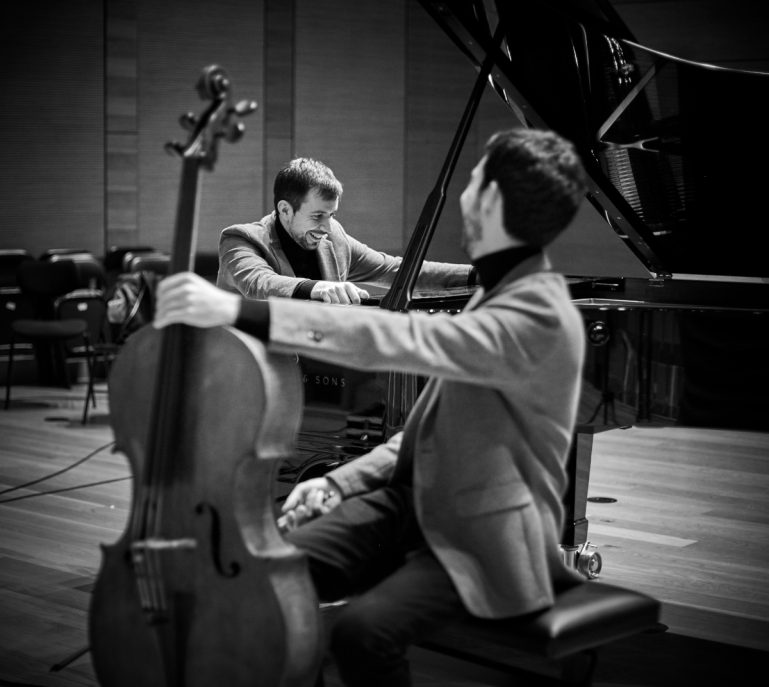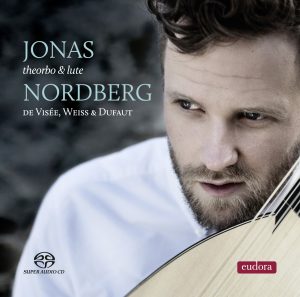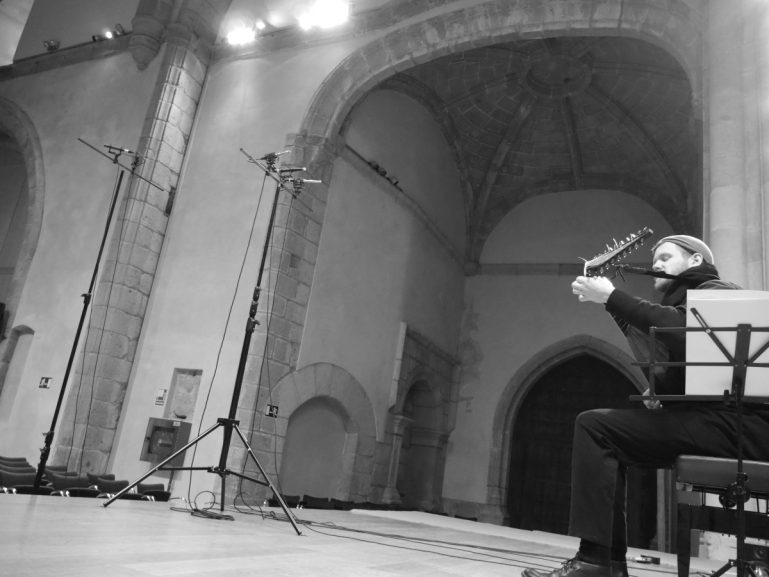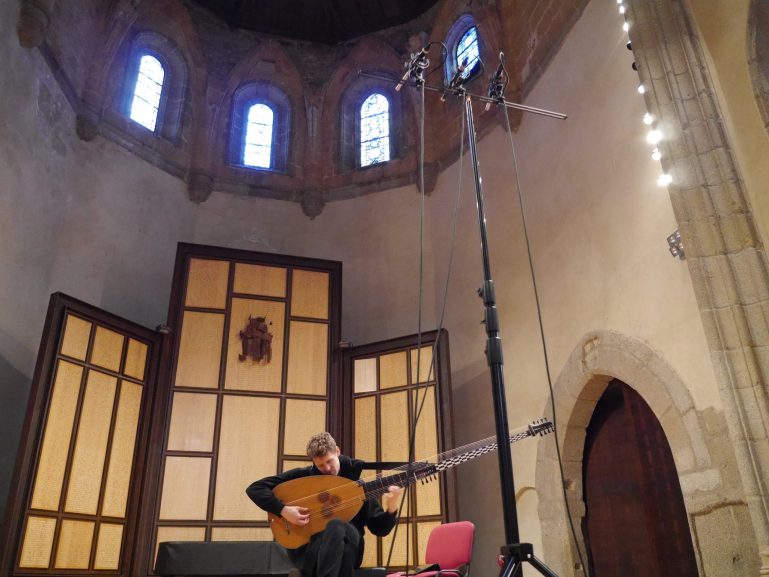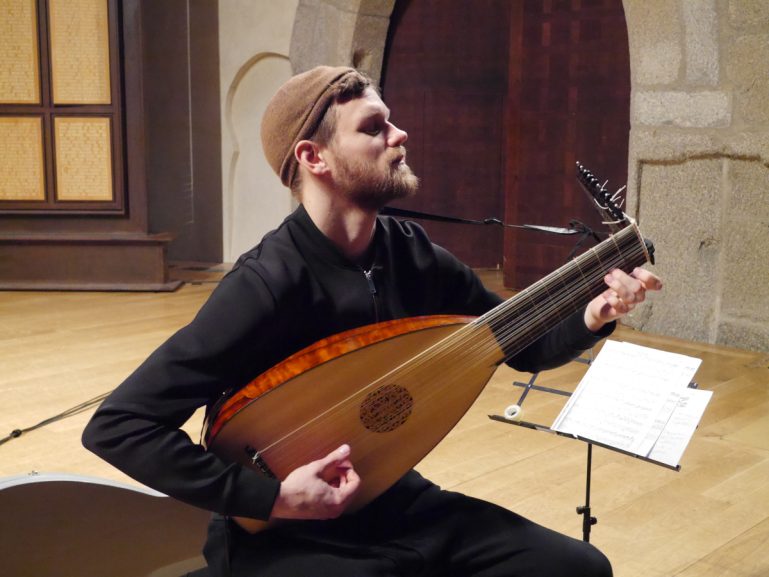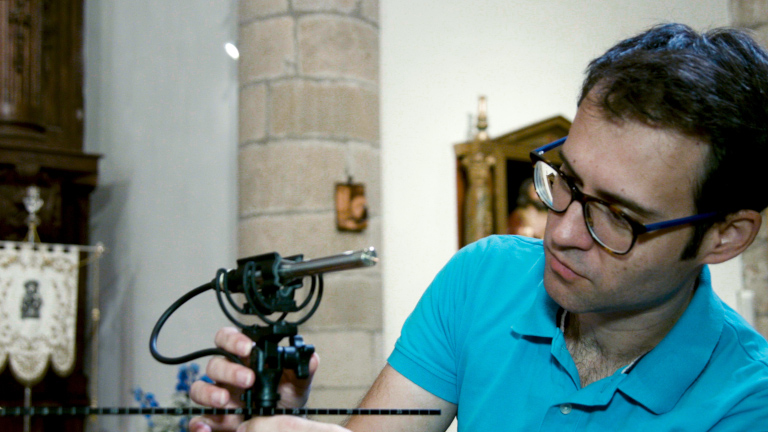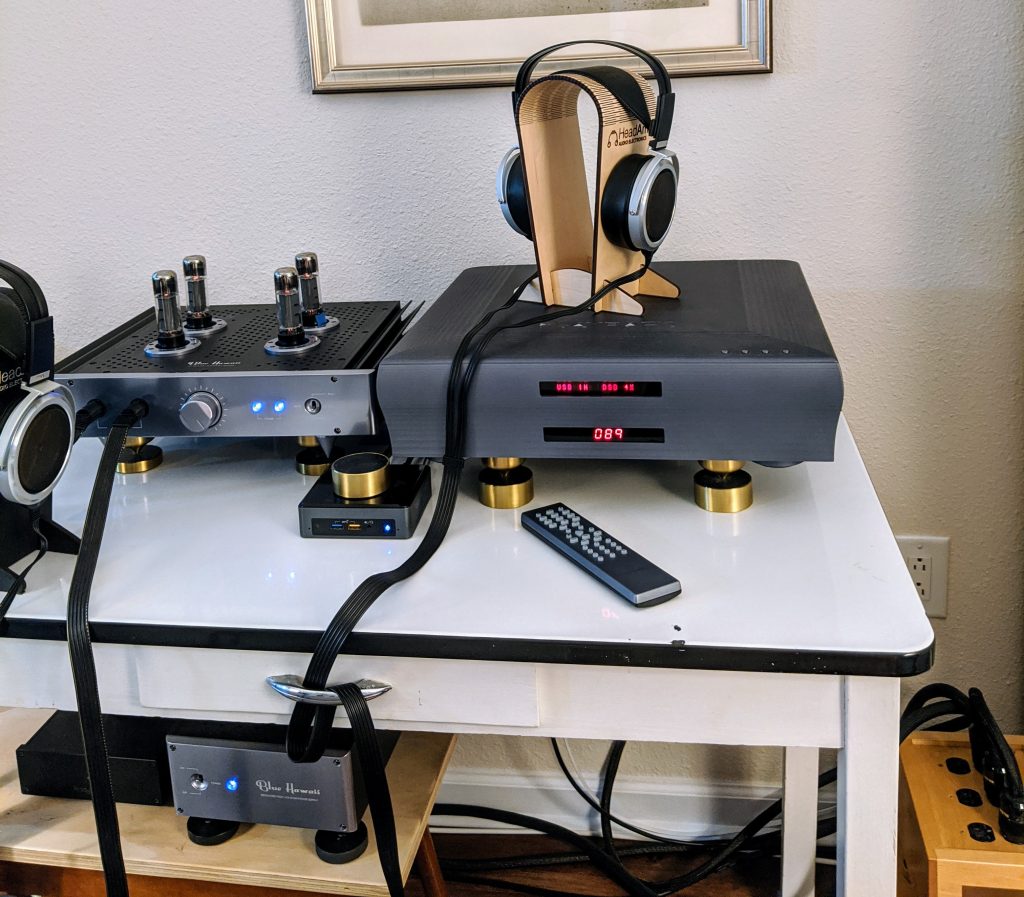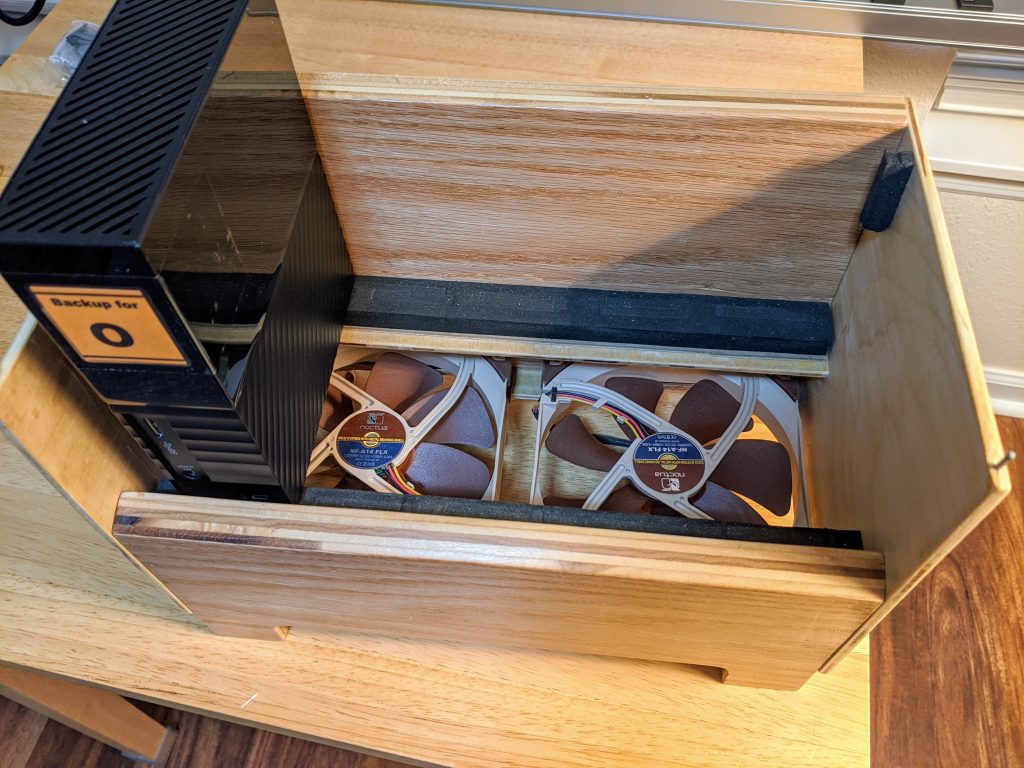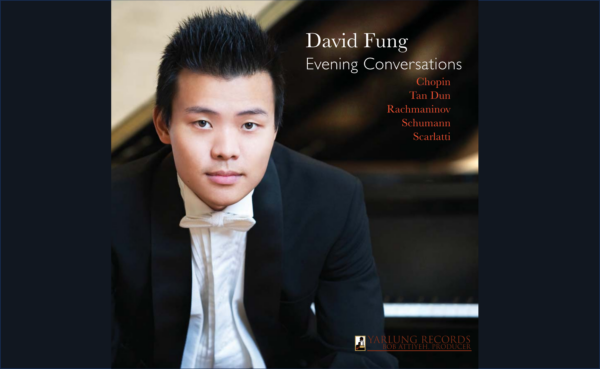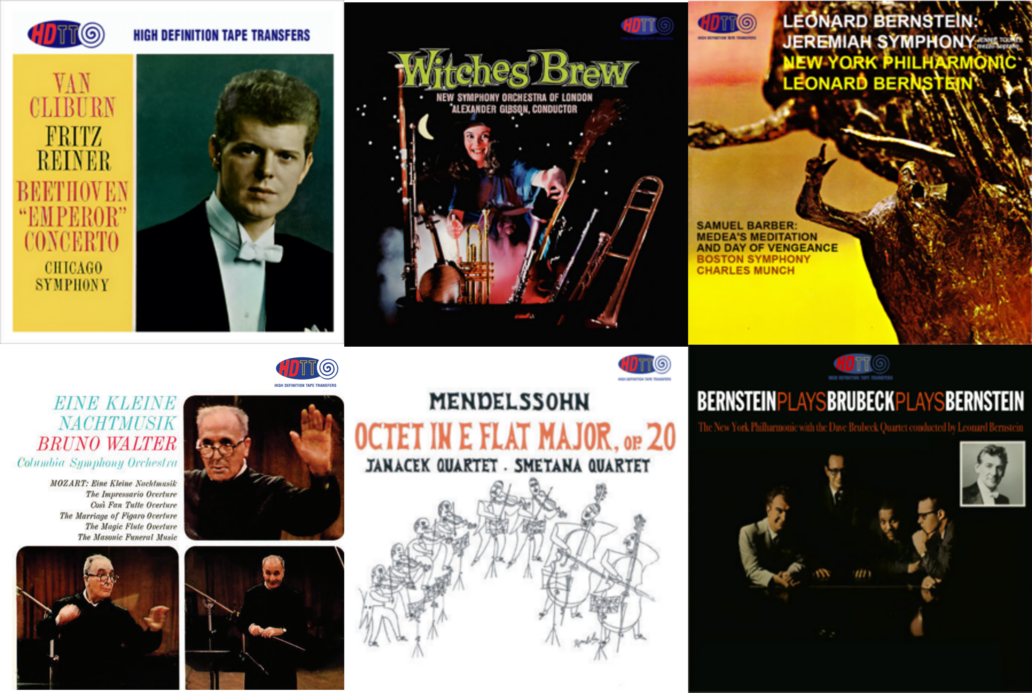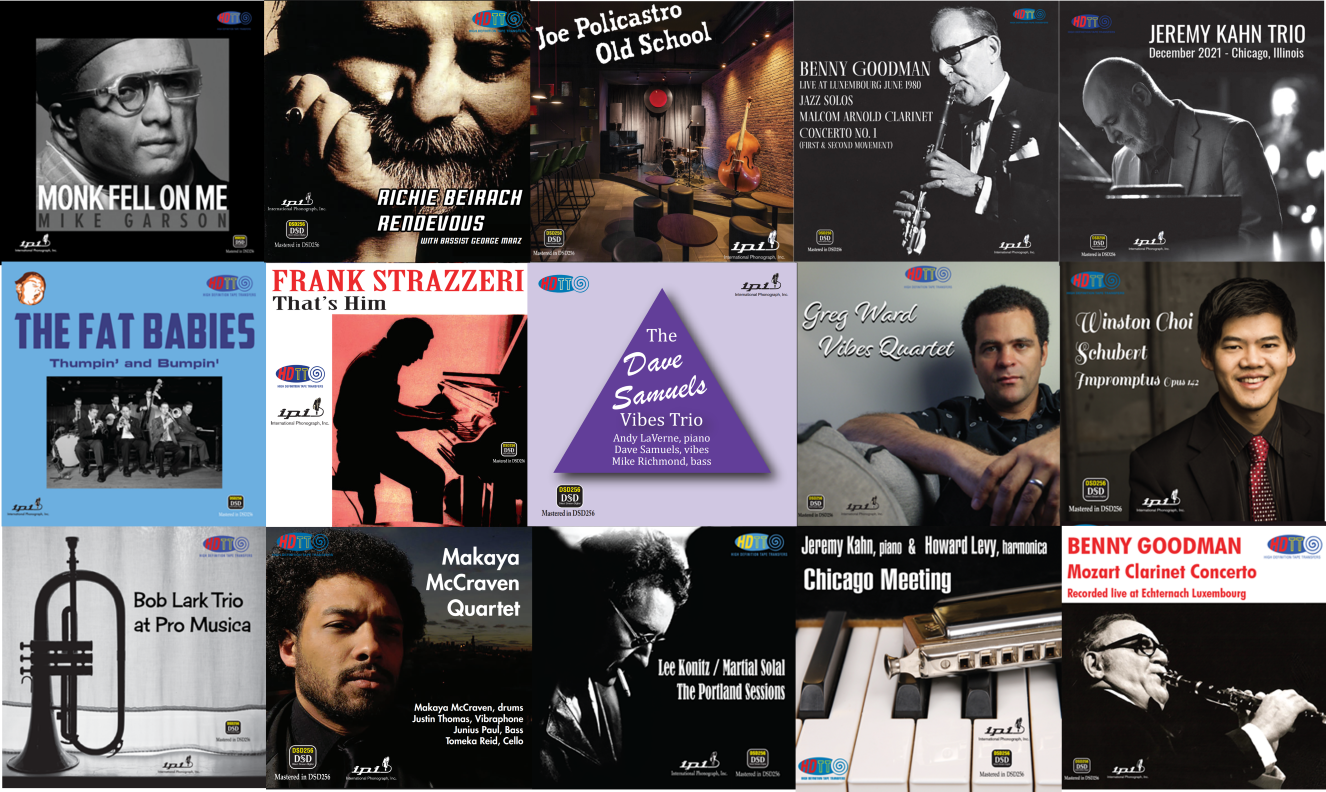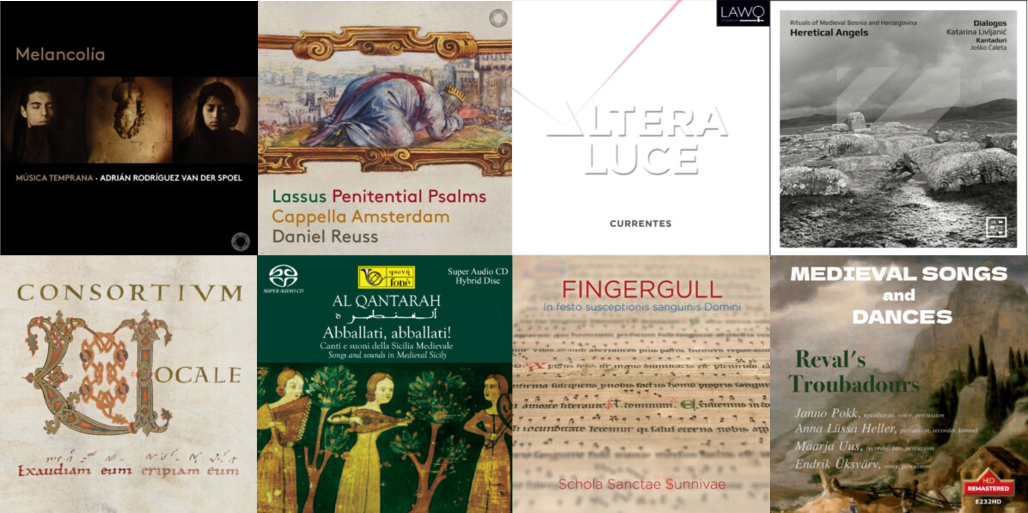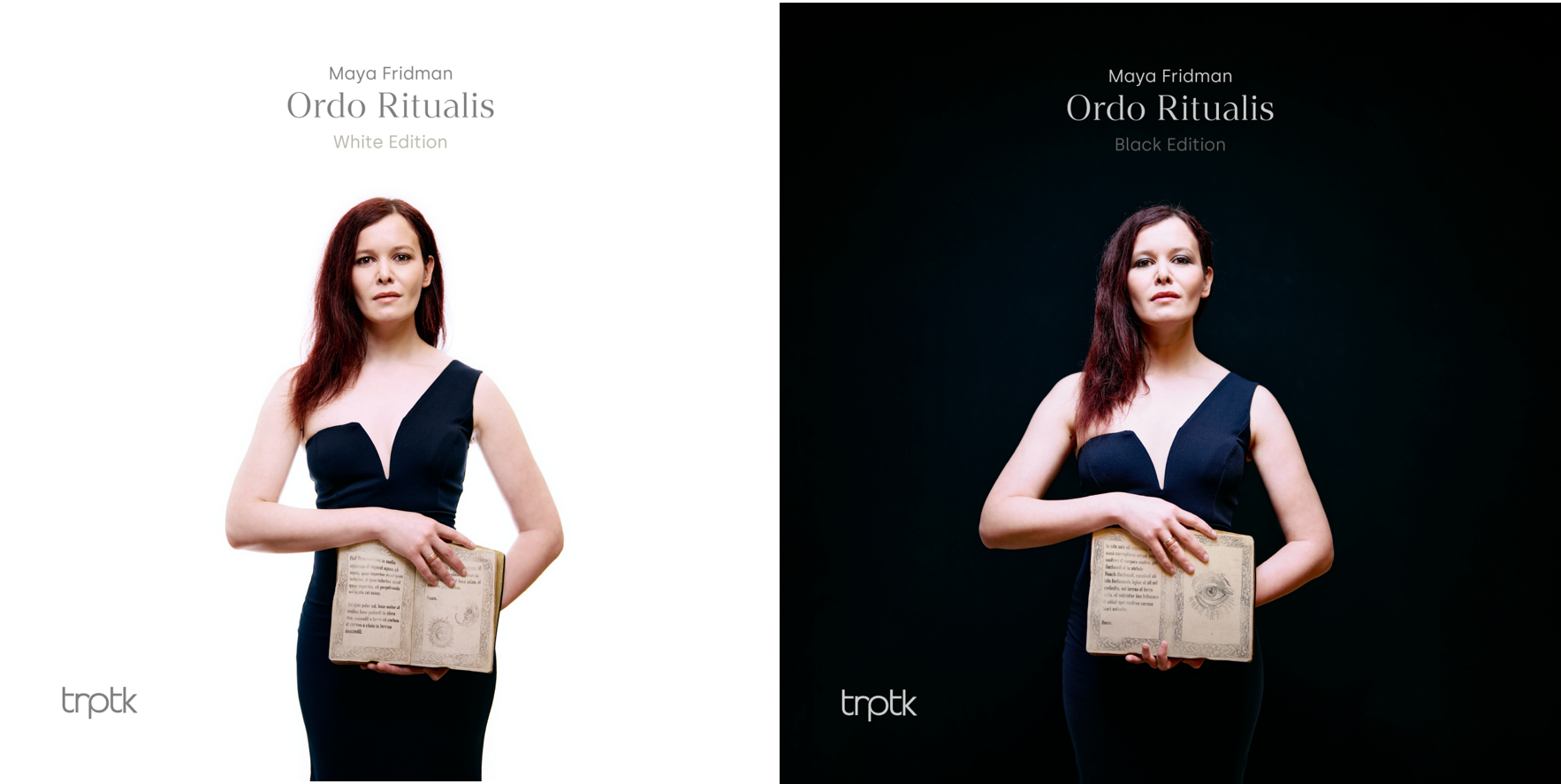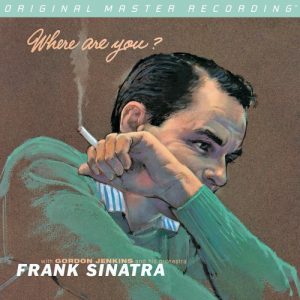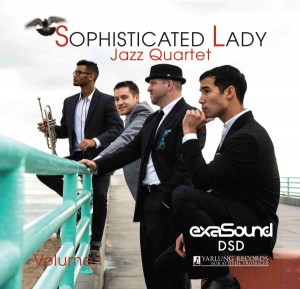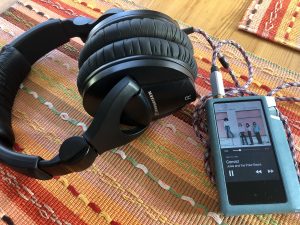You may have gathered that I greatly enjoy the marvelous recordings released by Gonzalo Noqué on his Eudora Records label. Recently I've been thoroughly engaged by four utterly delightful albums which I describe below in greater detail. As with virtually all releases from Eudora, these are in Pure DSD256, the sound is utterly transparent, and and the content is deliciously musical.
- Notebook, Piano Works of Chopin and Janacek - Domenico Codispoti (Pure DSD)
- Ondulation, Music for Guitar by Bach and Kurtag - Pedro Mateo González (Pure DSD)
- Shadows, Music of Fanny & Felix Mendelsohnn, Clara Schumann, Gustav Jenner (Pure DSD)
- Jonas Nordberg, lute & theorbo, playing Music of de Visee, Weiss & Dufaut (Pure DSD)
- A further note about recording engineer Gonzalo Noqué of Eudora Records
Notebook, Piano Works of Chopin and Janacek, Domenico Codispoti. Eudora 2022 (Pure DSD256) HERE
- Chopin - 24 Preludes, op 28
- Janacek - On an Overgrown Path I-X
- Janacek - Sonata 1.X."1905"
How many times have I written that I completely adore the recordings of piano made by Eudora founder and chief recording engineer Gonzalo Noqué? Let me say it yet again: his recordings are my ideal for how a piano should be recorded. He manages to achieve a perfect balance of direct and reflected sound, the detail is precise and highly resolved but the microphones are not jammed up against the string or buried in the piano case. The tone is invariably full, rounded, golden with the capture of immense multitudes of harmonics. The beautiful timbre of the instrument being recorded simply flows out of his recordings. I can listen to any of them over and over again, and I always look forward to his next release.
And I never cease to be amazed by the superlative technique and musical acumen of the pianists who come to him for their recordings. Colom, Gómez-Vázquez, Laso—they have all been superb across multiple different albums.
Domenico Codispoti, in this instant recording, continues that line of compelling pianists. I had not heard Codispoti before. I am thrilled to hear him for this first time.
I am a firm believer that one can not have too many performances of Chopin's 24 Preludes, op 28 (1839). There is so much richness in these compositions and so many ways to interpret and present them. Codispoti brings a delightfully fresh and vibrant perspective to these pieces. His playing is subtle, flexible, delicate and, where called upon, very powerful. He seduces with these pieces. What a delightful addition to my musical education and my music library are these performances!
Janacek's On an Overgrown Path (1911) series of ten miniature for piano is new to me. It is an evocative and haunting work based on Moravian folk tunes. As Codispoti comments in the enclosed booklet, "They have in common with the Chopin Preludes a fleeting character, transparent honesty and a simple yet profound language." This is coupled with Janacek's brooding, complex and tormented Sonata 1.X."1905" which closes with an open question, not a resolution. A very fitting end to this hour and 17 minutes of compelling musicianship. Highly recommended!
Notebook recording session, photos courtesy of Eudora Records.
Ondulation, Music for Guitar by Bach and Kurtag, Pedro Mateo González. Eudora 2022 (Pure DSD256) HERE
- J.S. Bach - Suite in C minor, BWV 997
- J.S. Bach - Suite in G Major, BWV 1007
- J.S. Bach - Partita in D minor, BWV 1004
- G. Kurtag - Darabok a Gitráriskolának (first recording)
Ondulation is a very attractive album featuring recordings of Bach’s Suites and Partitas on the guitar, interspersed by first recordings of György Kurtág’s four short pieces extracted from "Darabok a Gitáriskolának." Recorded in the resonant acoustics of the 13th Century Convent of San Francisco, in Ávila, Spain (yes, as an American I had to look twice at the name of that recording venue), the sound quality is superb.
Recording engineer Gonzalo Noqué has once again found that perfect balance of direct and reflected sound to create an experience that is as close to being in the audience for a live recital as I have in my music library. And the Pure DSD256 recording retains all of the delicacy, detail and harmonic overtones of the beautiful sounding guitar that González performs.
Bach's suites and partitas have proven themselves well suited for arrangements on a variety of instruments over decades. And here Pedro Mateo González puts that suitability to excellent purpose in these delightful arrangements for guitar.
To quote from delightful notes by Sebastián Wise, a close friend of the guitarist, in the enclosed booklet:
Bach growls. It is a quick gesture, concise. He growls. In Kothën’s court, in Leipzig. Surrounded by accomplished musicians or scatterbrained students. He listens, writes, and growls. Flocks of scores shoot off his desk, drawing arches in the air, encircling him like lurking white birds, the smell of coffee and tobacco in the air. The fireplace crepitates and inspires him to include a passage of pizzicato notes. He smiles, barely satisfied, before he growls again. One could say his entire music is an endless necklace of growls.
This imaginative narrative continues and it is well worth reading. Even if you don't purchase this album (and you should), download the booklet HERE and enjoy this bit of enchanting prose as it continues across three additional segments.
The first Bach Suite González plays is the Suite in C minor, BWV 997, originally written by Bach of the Lautenwerk (lute-harpsichord). A second version is an arrangement for lute that may or may not have been by Bach. Either way, González's performance is delicious. The lautenwerk is a European keyboard instrument of the Baroque period. It is similar to a harpsichord, but with gut (sometimes Nylon) rather than steel strings, producing a mellow tone.
A modern lautenwerk. No specimens from the eighteenth century are known to have survived.
The Suite in G major, BWV 1007, is the first of the famous suites for solo cello. I don't know what arrangement González may be using, but the performance is very engaging and adapts very well on the guitar. In my music library I have many different recordings of this suite for solo cello including a variety for guitar, lute and violin. This performance stands tall amongst any of them.
The Partita in D minor, BWV 1004, is part of Bach's compositional cycle called Sonatas and Partitas for Solo Violin. One often hears it arranged for guitar, as here, and the final movement, "Ciaccona," has been transcribed for piano, organ, cello, guitar, orchestra and virtually every other instrument one might imagine. Once again, González' performance of the Partita will stand among any other performance you might find. Highly recommended!
Ondulation recording session, photos courtesy of Eudora Records.
Shadows, Music for cello and piano by Fanny & Felix Mendelsohnn, Clara Schumann, and Gustav Jenner, Lorenzo Meseguer (cello), Mario Mora (piano). Eudora 2022 (Pure DSD256) HERE
- Fanny Mendelssohn - Fantasia in G minor
- Felix Mendelssohn - Sonata in D major, op. 58
- Clara Schumann - Drei Romanzen, op. 22
- Gustav Jenner - Sonata in D major
With the exception of Felix Mendelssohn, each of these composers have existed largely in the shadows of our musical world, only heard of rarely. All four come from Central Europe and lived in the shadow of other composers who influenced their style and whose reputation has sometimes eclipsed their own. Each has been undervalued for various reasons at various times. Yet all have much to offer.
The album opens with the deeply contemplative, somewhat dreamy Fantasia in G minor by Fanny Mendelssohn that concludes with a rollicking upbeat finish. It is a work of great expressiveness and tonal richness, creating a delightful opening to the concert. Mario Mora comments: "I think the Fantasia in G minor by Fanny Mendelssohn (or Fanny Hensel, as she was by then), which didn’t make it into her catalogue and which I only discovered thanks to this project, is a first-rate work—showing just as much brilliance as the music of her brother Felix." And yet this is a work rarely performed. Wonderful to hear it in this recording.
We are then carried onto the challenging and ever-changing Cello Sonata No. 2 in D major, op. 58 by her younger brother Felix. A mainstay of the cello and piano repertoire, and very difficult, this piece is played with full panache and bravura by our musicians, Lorenzo Meseguer on cello and Mario Mora on piano. Mario Mora describes the piece as one in which "every movement has these natural, catchy melodies that stick in your head. I’m also fascinated by the fact that each movement has its own distinct personality—the Allegro assai vivace is luminous, the Allegretto scherzando is playful, the Adagio is, as you said, a tribute to the past and to Bach, and the Molto allegro e vivace finale, although it’s incredibly virtuosic, doesn’t relinquish the perfect melodies that make his music so attractive."
Leaving the Mendelssohn siblings, we are treated to perhaps the most well known work by Clara Schumann, her delightful Drei Romanzen, op 22, for Violin and Piano, heard here in a nice transcription to cello. The transcription for cello, with is greater range of timbres, brings a luxurious depth of feeling to this piece.
The album closes with Gustav Jenner's Sonata in D major, which is separated by over 70 years from Fanny Mendelssohn's Fantasia. Jenner's music is rarely performed and deserves to be heard more often. The Sonata in D major is majestic, it sets out some large-scale themes and, in Brahmsian style, some great transitions. It's final Allegro movement makes a thoroughly satisfying close to this concert.
Fanny Mendelssohn (1805-1847) was a gifted pianist and a prolific composer with over 450 compositions for piano, chamber ensembles and voice, many of which were unpublished in her lifetime. Her Fantasia in G Minor illustrates what could have become of this talented composer if societal conventions had not restricted women's musical activities to the private salon at this time.
Clara Schumann (1819-1896) grew up in Leipzig, where both her father Friedrich Wieck and her mother Mariane were pianists and piano teachers. In addition, her mother was a singer. Clara was a child prodigy, and was trained by her father. She began touring at age eleven, and was successful in Paris and Vienna, among other cities. She married the composer Robert Schumann, and the couple had eight children. Together, they encouraged Johannes Brahms and maintained a close relationship with him. She premiered many works by her husband and by Brahms in public.
Gustav Jenner (1865-1920) was a German composer, conductor and musical scholar. He was the only formal composition pupil of Johannes Brahms. Chamber music was the significant focus of his composing, with three string quartets, a piano quartet, a trio for clarinet, horn and piano, three violin sonatas, and the cello sonata performed here, along with several choral works and songs.
Felix Mendelssohn (1809-1847), Fanny’s younger brother, was a child prodigy second only to Mozart, on the same level as Camille Saint-Saens of a generation later, and a whole-step above Franz Liszt, Chopin, and Brahms. All of which is to say that he was really, really good. Perhaps to his historical detriment, he was also the principal German guardian of "absolute music" versus the programmatic music of Wagner and others of that persuasion. And then he was somewhat lost to history until his reputation was gradually resurrected beginning around the middle of the twentieth century. A large portion of Mendelssohn's 750 works still remained unpublished in the 1960s, but most of them are now available. Such an irony that it was largely due to Mendelssohn efforts that J.S. Bach was resurrected from having been lost to the musical world.
As you may have gathered, this is yet another highly recommended recording from Eudora Records. Gonzalo Noqué once again works his magic to bring us the sound of a live performance in our listening rooms via this beautiful transparent, highly resolving, Pure DSD256 recording.
Shadows recording session, photos courtesy of Eudora Records.
Jonas Nordberg, lute & theorbo, playing Music of de Visee, Weiss & Dufaut. Eudora 2015 (Pure DSD256) HERE
- Robert de Visée - Suite in A minor
- Silvius Leopold Weiss - various pieces
- François Dufaut - Suite in G minor
- Robert de Visée - Suite in E minor
Swedish lutenist Jonas Nordberg makes quite a positive impression in this solo debut album release with Eudora. He has recorded also for BIS, but this Pure DSD256 recording made by Gonzalo Noqué is where I recommend you start. It is a gorgeous recording taking full advantage of the acoustic of the 13th Century Spanish church of San Francisco, in Ávila, Spain. As is usual with recordings from Gonzalo Noqué, the sound is transparent, highly detailed, yet warm and very analog sounding. One hears every note and the fingers on the strings, but without the distracting "hyper-detail" that often plagues lesser quality recordings.
Nordberg has selected a nice combination of works from the Baroque, beginning and then ending with the grandeur and elevated spirit of the French Baroque music of François Dufaut and Robert de Visée, with an extended interlude with the refinement and extraordinary originality of the works of Silvius Leopold Weiss, who was regarded as the finest lutenist of his time, this is a program in which one can relax and immerse oneself. Nordberg's playing is refined, fluid and flexible, with an exquisite use of subtle dynamic shifts and ornamentation. And he is technically as perfect as one might ask for.
I heartily recommend that you treat yourself to this intimate recording. It is a delicacy I have been enjoying immensely. We can only hope for Nordberg to return to Eudora for additional recordings of this quality.
Jonas Nordberg recording session photos courtesy of Eudora Records.
A further note about recording engineer Gonzalo Noqué of Eudora Records...
There are great recording engineers, and then there are great perfectionist recording engineers. I place Gonzalo in this latter category of a perfectionist/absolutist. His work consistently complements his artists with the highest quality recorded sound that I get the pleasure to hear. I say that he is a perfectionist/absolutist because he resolutely records to DSD256 and releases his recordings without any post-processing in DXD. All of the track editing is done in DSD256, all of his mixing (to the limited extent that there may be any) is done "on the fly" via the microphone preamps to the DSD256 stereo and multi-channel tracks being laid down. His releases are Pure DSD. And that takes immense courage, immense preparation, and consummate skill. And with this effort, he consistently captures some of the most transparent, natural sounding, acoustically near-perfect recordings that I hear.
His recording focus is on small ensemble and solo instrument performances. This is likely a necessity for his style of minimally mic'd, direct-to-DSD, no DXD post-processing, recording. And what he achieves while staying within his preferred recording space is mind-blowing to me. I eagerly await each of his carefully crafted releases.
For some additional background, you might enjoy reading my article, A Conversation with Gonzalo Noqué. Eudora Records.




